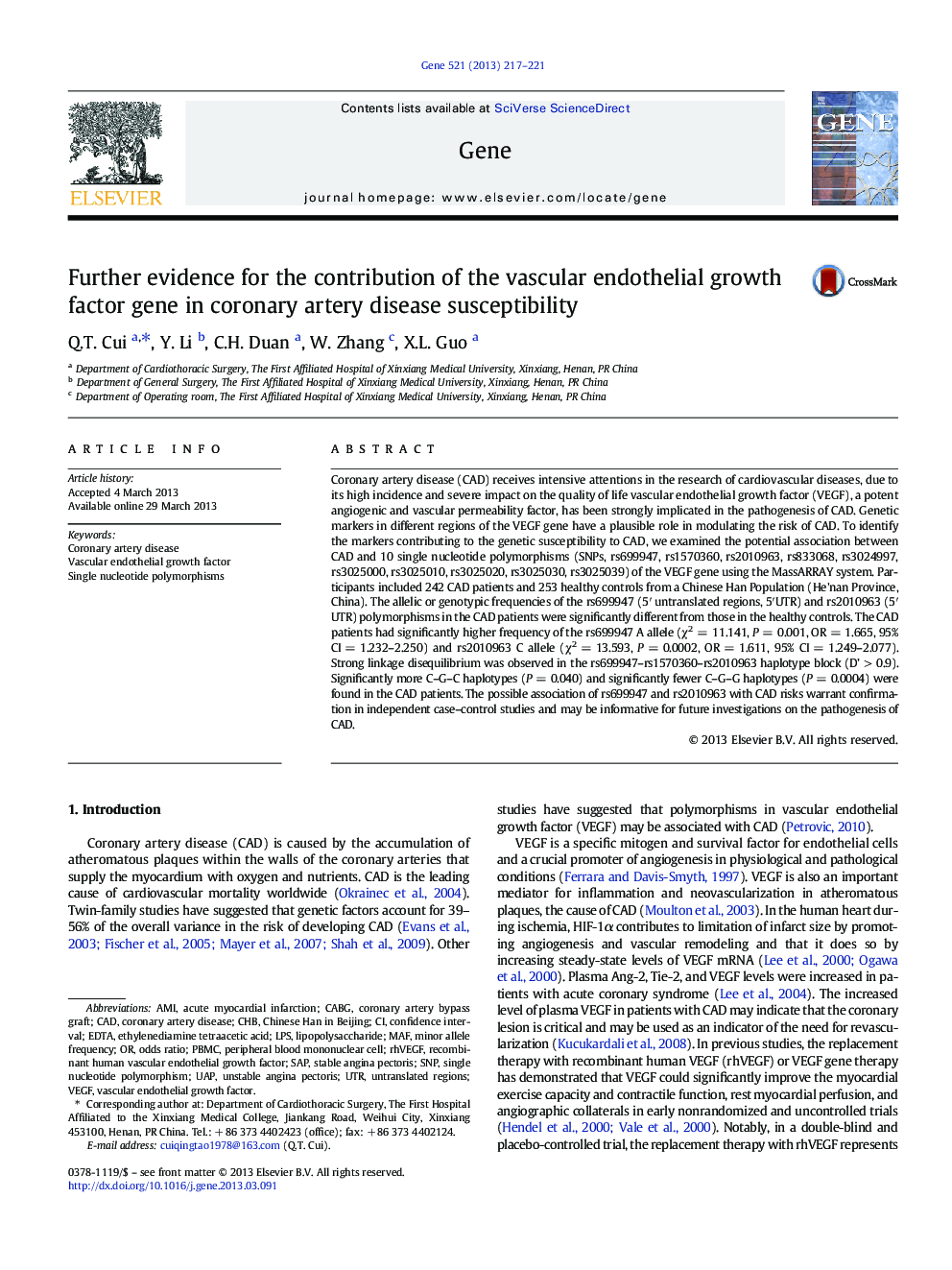| Article ID | Journal | Published Year | Pages | File Type |
|---|---|---|---|---|
| 2817189 | Gene | 2013 | 5 Pages |
•The rs699947 (5′UTR) was significantly associated with CAD.•Another significant association was observed for rs2010963 (5′UTR).•Significantly more C–G–C haplotypes resided in block 1 were found in cases.•Significantly more C–G–G haplotypes resided in block 1 were found in cases.•We provide further evidence of VEGF to the genetic susceptibility of CAD.
Coronary artery disease (CAD) receives intensive attentions in the research of cardiovascular diseases, due to its high incidence and severe impact on the quality of life vascular endothelial growth factor (VEGF), a potent angiogenic and vascular permeability factor, has been strongly implicated in the pathogenesis of CAD. Genetic markers in different regions of the VEGF gene have a plausible role in modulating the risk of CAD. To identify the markers contributing to the genetic susceptibility to CAD, we examined the potential association between CAD and 10 single nucleotide polymorphisms (SNPs, rs699947, rs1570360, rs2010963, rs833068, rs3024997, rs3025000, rs3025010, rs3025020, rs3025030, rs3025039) of the VEGF gene using the MassARRAY system. Participants included 242 CAD patients and 253 healthy controls from a Chinese Han Population (He'nan Province, China). The allelic or genotypic frequencies of the rs699947 (5′ untranslated regions, 5′UTR) and rs2010963 (5′UTR) polymorphisms in the CAD patients were significantly different from those in the healthy controls. The CAD patients had significantly higher frequency of the rs699947 A allele (χ2 = 11.141, P = 0.001, OR = 1.665, 95% CI = 1.232–2.250) and rs2010963 C allele (χ2 = 13.593, P = 0.0002, OR = 1.611, 95% CI = 1.249–2.077). Strong linkage disequilibrium was observed in the rs699947–rs1570360–rs2010963 haplotype block (D’ > 0.9). Significantly more C–G–C haplotypes (P = 0.040) and significantly fewer C–G–G haplotypes (P = 0.0004) were found in the CAD patients. The possible association of rs699947 and rs2010963 with CAD risks warrant confirmation in independent case–control studies and may be informative for future investigations on the pathogenesis of CAD.
